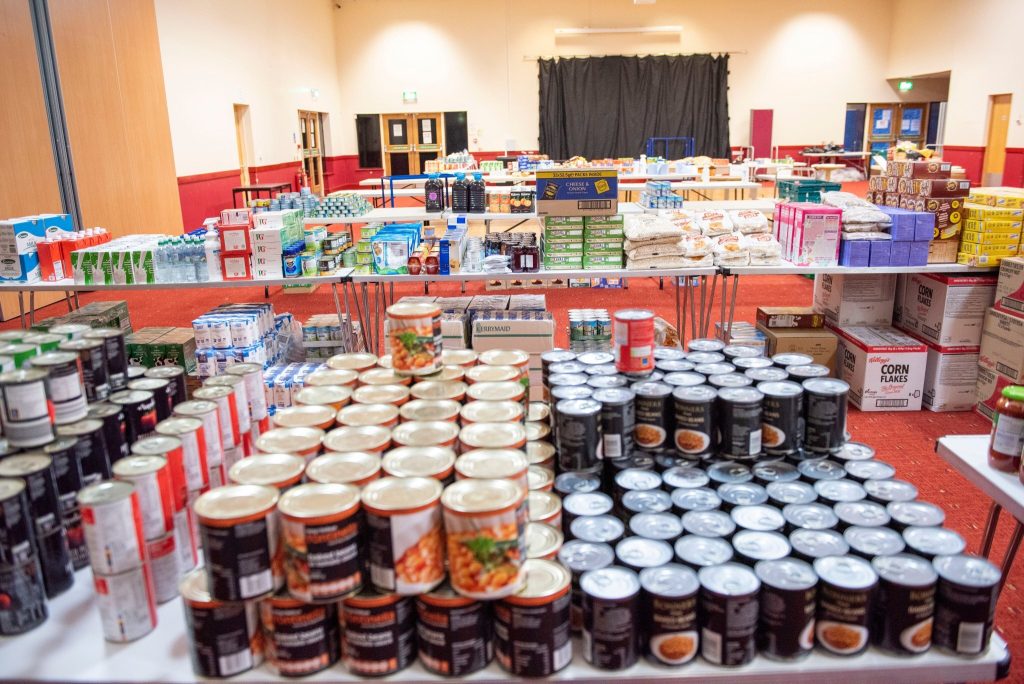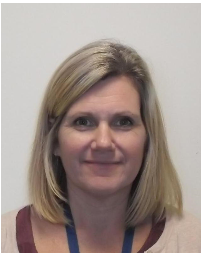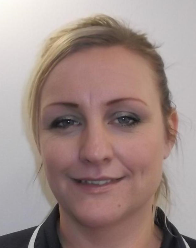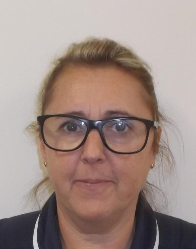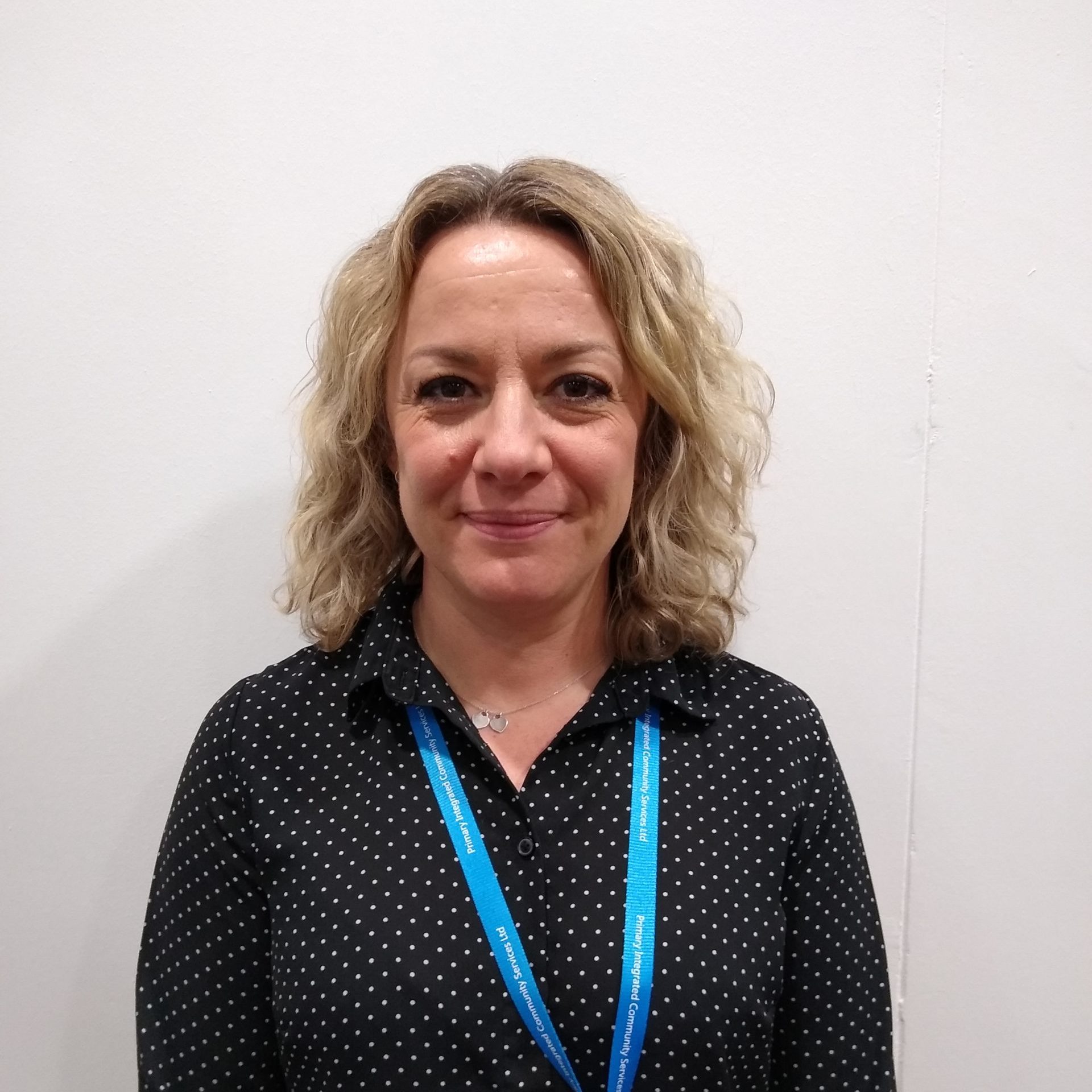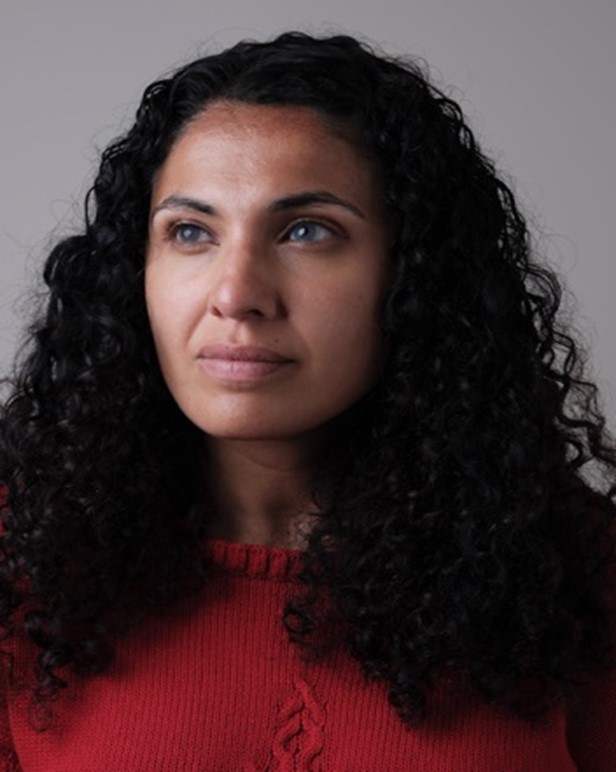A look back at 2020: An extraordinary year in NHS and Nottingham’s history
After what has been one of the most extraordinary years in the country’s and the NHS’s history, partners across Nottingham and Nottinghamshire have taken a look back at the year and the challenges faced as well as acknowledging the successes during a tumultuous year.
The NHS has adapted quickly to cope with this year’s changing environment; from dealing with Covid-19 in our hospitals and health care settings, learning how to safely see patients while social distancing, setting up specialist mental health services, developing effective remote consultations, to GPs adapting to see and treat their patients safely.
Despite the challenges, we have collaborated over the last year to support each other throughout the pandemic and now, once again, partners have come together as the Covid-19 vaccine is rolled out to the public.
Each area of healthcare in the county has had its own challenges and while 2020 may have been one of the most extraordinary years in NHS history, it was also a year where we received astounding support from the public, which we are very grateful for. We celebrated the 72nd anniversary of the NHS and the public showed their support through volunteering as well as the iconic “clap for carers”.
A look back at the year:
- At Nottingham University Hospitals this year 6,500 patients were recruited to Covid trials supporting the world-leading work to develop a vaccine and 11,182 staff members had their flu vaccine, protecting them and their patients against flu.
- At both Queen’s Medical Centre and Nottingham City Hospital there were 3,337 cancer surgeries from 18 March to 29 December, only slightly down on the same period last year, 18,856 planned operations, 304,066 virtual appointments and 8,332 births.
- At Sherwood Forest Hospitals 86.4% of front line workers were vaccinated with the Flu Jab this year – the highest rated year to date. The Trust was also rated as one of the cleanest in the country scoring 100% for cleanliness at King’s Mill Hospital, 99.35% for Newark Hospital and 99.86% for Mansfield Community Hospital against the national average of 98.06%.
- In May 2020, England’s Chief Inspector of Hospitals, on behalf of the Care Quality Commission (CQC), improved the rating of King’s Mill Hospital (KMH) to Outstanding.
- At Sherwood Forest Hospitals since April 2020: 13,500 patients have had a day case procedure or treatment; 2,200 patients have had an elective inpatient procedure and 210,000 outpatient appointments have taken place. In 2020 around a third of their outpatient appointments were managed remotely through virtual and telephone appointments, helping to keep patients, colleagues and visitors safe.
- From January to October 2020 there have been more than 4.5 million GP appointments in Nottingham and Nottinghamshire with 52% being the same day or next. The number of appointments which were booked on the same day or the following day is higher this year than last year by around 6%.
- Nottinghamshire Healthcare has set up a new Mental Health Crisis Line for local people in crisis and needing immediate help. Since it was set up in April 2020 it has received 7,000 calls – around 30-40 a day. They also launched a Mental Health Helpline to provide emotional support and more information about help available locally for anyone struggling, and this has received around 250 calls a month.
- Nottinghamshire County Council set up a Coronavirus Community Support Hub in March which is accessible by phone, the Council website or the My Notts app.
- There are currently 284 voluntary groups, 120 individual volunteers, 87 charity organisations, 20 online community groups and 241 businesses offering support across the county following the pandemic.
- Nottinghamshire County Council’s Customer Services Centre has handled 23,219 incoming calls about Covid-19 and made 26,975 outgoing calls relating to emergency food support.
- Nottingham City Council mobilised 200 council workers to frontline operations and recruited 400 new workers into social care during the pandemic.
- East Midlands Ambulance Service has seen a new rota of doctors join their 999 control room Clinical Assessment Team, working alongside our nurses and paramedics to provide advanced medical advice to help patients get access to the right kind of care at the right time.
Dr Andy Haynes, Executive Lead of Nottingham and Nottinghamshire ICS said: “It would be impossible to succinctly capture all of the excellent work that has gone on across our system in the last year. The work to support our acute hospitals in times of pressure has been really strong – with contributions from ambulance colleagues, the community providers, social care teams and with coordination from commissioners, we have come together in times of need to make sure that our patients and citizens are well cared for. The system coming together as one has been a highlight of the year, being able to learn from each other, adapt and continue to care for our patients has been very important. It has not been an easy year; the pandemic has brought with it a number of difficulties and pressures. Despite this, I would like to thank everyone who works in the NHS and social care for their tireless work throughout the last year, it has undoubtedly been a tough year but I think we can take great pride in how we have come together and I hope 2021 sees this positive work continue.”
Lisa Kelly, Chief Operating officer at Nottingham University Hospitals NHS Trust, said: “It has been said by many times that 2020 has been an unprecedented year and has presented a number of significant challenges in what have been very difficult circumstances for us all. I have been delighted and inspired by how Team NUH, alongside our health and social care community partners, has come together to tackle these challenges, support each other and continue to deliver excellent care for our patients and the population we serve. Together we continue to work towards ensuring that no one is in hospital longer than they need to be. Within the Trust we have worked incredibly hard to reduce delays in ambulance handover times so that patients get the care they need and ambulance crews are available to respond to the next emergency. We have put in place new measures and processes to ensure that our Emergency Department is not overcrowded to maintain a Covid-safe environment for our patients and staff.
“Like hospitals up and down the country, as we prepared for the first wave of the pandemic we were forced to postpone some outpatient appointments, procedures and operations. This was a really difficult decision, and we are truly sorry to anyone who was affected. Through extensive planning, hard work and the dedication and flexibility of our staff we managed to restore much of our planned work over the summer and start to reduce some of the backlogs. We continue to work hard to maintain outpatient and diagnostic services, although the second wave of Covid-19 has led to us cancelling some further operations. We have continued to work hand in hand with our partners in the Independent Sector to protect as much capacity as possible for our cancer and urgent patients, transferring over 2,000 patients since March – this has only been possible because of the dedication of our surgical, anaesthetic and nursing staff in working flexibly across multiple sites. We will be working hard through the remaining winter months to maintain those restoration plans whilst meeting the challenges posed by winter and Covid-19.
“In delivering both our planned and emergency services we have had to give significant thought to tackling the new challenges Covid-19 has presented, particularly in maintaining a safe environment for our staff and patients whilst delivering the excellent care we aspire to. I would like to thank all of
the colleagues and teams who form part of Nottingham University Hospitals. It’s a team I am very proud to be a part of”.
Chief Operating Officer for Sherwood Forest Hospitals, Simon Barton said: “It has been a tough year for both our community and our colleagues, but throughout the pandemic we have seen amazing strength, cooperation and determination from our colleagues both within Sherwood and beyond. I am pleased to say that we still remain one of the top hospitals in the Midlands for waiting times for emergency care and for crucially ensuring our Emergency department is not overcrowded which creates risk for patients and distancing. I would like to thank colleagues, as it is testament to their hard work and dedication that we continue to achieve this.
“Although we had to postpone some procedures and operations earlier in the year due to the pressures of the pandemic, I am pleased to say that our cancer care is now back up to our pre-covid levels and we have worked hard to provide elective care alongside the pressures of emergency care and COVID-19. Rebuilding clinics, theatre timetables, staffing rotas and creating safe areas with social distancing, masks and screens has been a real team effort. It has been harder to restore our services than it was to stop them, as we have had to consider how to keep our colleagues and patients safe, but I would like to thank everyone who has been involved in the restoration of our services and our patients for bearing with us whilst we got all the processes in place.
“I’m really proud of what we have achieved over the last year at Sherwood. We have seen colleagues pull together to go above and beyond time and again, which has been really heart-warming to see.”
Dr John Brewin, Chief Executive of Nottinghamshire Healthcare, said: “It’s been a difficult and challenging time throughout the pandemic for everyone. I am so incredibly proud of the way our staff have responded. Their hard work and commitment and innovation in finding new ways of delivering care, has meant that we have been able to continue to provide vital services and the best possible care and treatment to our patients throughout.
“The pandemic has had a huge impact on people’s mental wellbeing. Early on we recognised this and set up a new Mental Health Crisis Line for local people in crisis and needing immediate help. Since it was set up in April 2020 it has received 7,000 calls – around 30-40 calls a day. We also launched a Mental Health Helpline to provide emotional support and more information about help available locally for anyone struggling, and this has received around 250 calls a month. Both the helplines have provided vital support throughout the pandemic and will continue into 2021.”
Amanda Sullivan, Accountable Officer at Nottingham and Nottinghamshire Clinical Commissioning Group, said: “This year has seen many challenges within primary care and across the health care system. I am proud of the way we have responded to these challenges so that we can continue to provide the best care to our patients.
“Primary care responded to the pandemic immediately by changing the way they saw patients and, where they could, providing virtual appointments. The work of primary care to continue to see their patients during the last year has been incredible and the figures show that from January to October 2020 there have been more than 4.5 million GP appointments in Nottingham and Nottinghamshire, which shows that the NHS has still been here for the public and I am grateful for this on-going commitment, especially throughout winter and with the roll out of a Covid-19 vaccine.
“Despite all of the challenges this year, I feel proud that we have come together to continue to provide for the people of Nottingham and Nottinghamshire and I hope that we continue to build on this into 2021.”
Alison Challenger, Director of Public Health in Nottingham, said: “We’ve been living with Covid-19 in our city and our communities for over nine months. I know this has not been easy for any of us. Our lives have been restricted, we feel inconvenienced, and we all have worry and anxiety over our health and wellbeing. Some of us, sadly, may have lost loved ones to the virus.
“I’m proud of the way people have responded to the challenge of staying safe and slowing the spread of the virus. I’m particularly impressed with the way we supported the most vulnerable people in our society – one of Nottingham City Council’s main strategic objectives was ensuring it had the right workforce in place to care for its citizens during Covid-19. This included mobilising 200 council workers to frontline operations and recruiting 400 new workers into social care.
“Winter will not be easy for us and we will have to continue to follow restrictions to make sure we can ease the burden on the NHS – but I believe we now have a route out of this pandemic, with vaccinations, testing and observance of guidance around ‘hands, face, space’. The end is in sight, but for now we must all continue to play our part to keep people safe.”
Councillor John Knight, Chairman of the County Council’s Resilience, Recovery and Renewal Committee said: “Nottinghamshire County Council has been working to respond to the Covid-19 pandemic and support those most affected by the crisis. Our Coronavirus Community Support Hub was established in March and is accessible by phone, the Council website or the My Notts app. The Hub provides a real-time online database, which allows residents who need support to submit their postcode and requirements and be shown a list of local groups and organisations who can meet those needs. At its peak during the summer, the Hub website received 1,000 hits a day.
“We have developed local guidance for care home providers to support safe visiting, enabling home care providers, professionals and residents’ families to work together to balance the benefits of visiting with the risk of transmission of Covid-19. We have contacted around 12,000 clinically extremely vulnerable people to offer help with putting support arrangements in place, to access food or other services.
“I want to congratulate all of our staff at Nottinghamshire County Council and all of the local volunteers for coming together to help residents through this difficult time.
“Our work to support people through the pandemic is continuing, and we are committed to ensuring that local people continue to have access to the help, advice and support they need.
“If we can take a positive from 2020, it must be the way people have united to overcome the challenges presented by Coronavirus. I hope that with the rollout of new vaccines we can look forward to 2021 being a progressively brighter and more enjoyable year.”
EMAS Chief Executive Richard Henderson said: “Without a doubt, this winter is going to be one of the most challenging yet for the whole health service – but we are prepared and ready.
“We’ve been working hard with our health colleagues around the region to get a robust winter plan in place and while it’s unlikely to be a ‘normal’ festive period for many, our residents can be assured that their ambulance service will be there for them if they need it. As well as the usual spikes we expect in winter-related illnesses, COVID-19 brings us a new set of challenges, but our staff are well trained, equipped and experienced in caring for patients with the virus safely.
“We have recruited even more staff and volunteers this year to ensure we have enough skilled people in place to manage our demand and their dedication is second to none. The doctors supporting our
teams from our 999 control rooms and our specialist practitioners are also making a huge difference, taking the pressure off hospital colleagues by providing advanced emergency care advice and care in people’s homes or our ambulances.
“This is such a busy time for all our amazing staff and I cannot tell you how thankful I am for all that they continue to do every single day. They’ve had to work in new ways to work safely, and I commend them for how they’ve risen to the challenge and responded to what has been a monumental year for us all.”
Lyn Bacon, Chief Executive of Nottingham City Care Partnership, said: “Over the last year we have faced wave after wave of challenge that has pushed us to levels never experienced before. Through the sheer determination and courage of our people and our ability to work as one system, we have faced this head on whilst protecting our most vulnerable patients and staff.”
